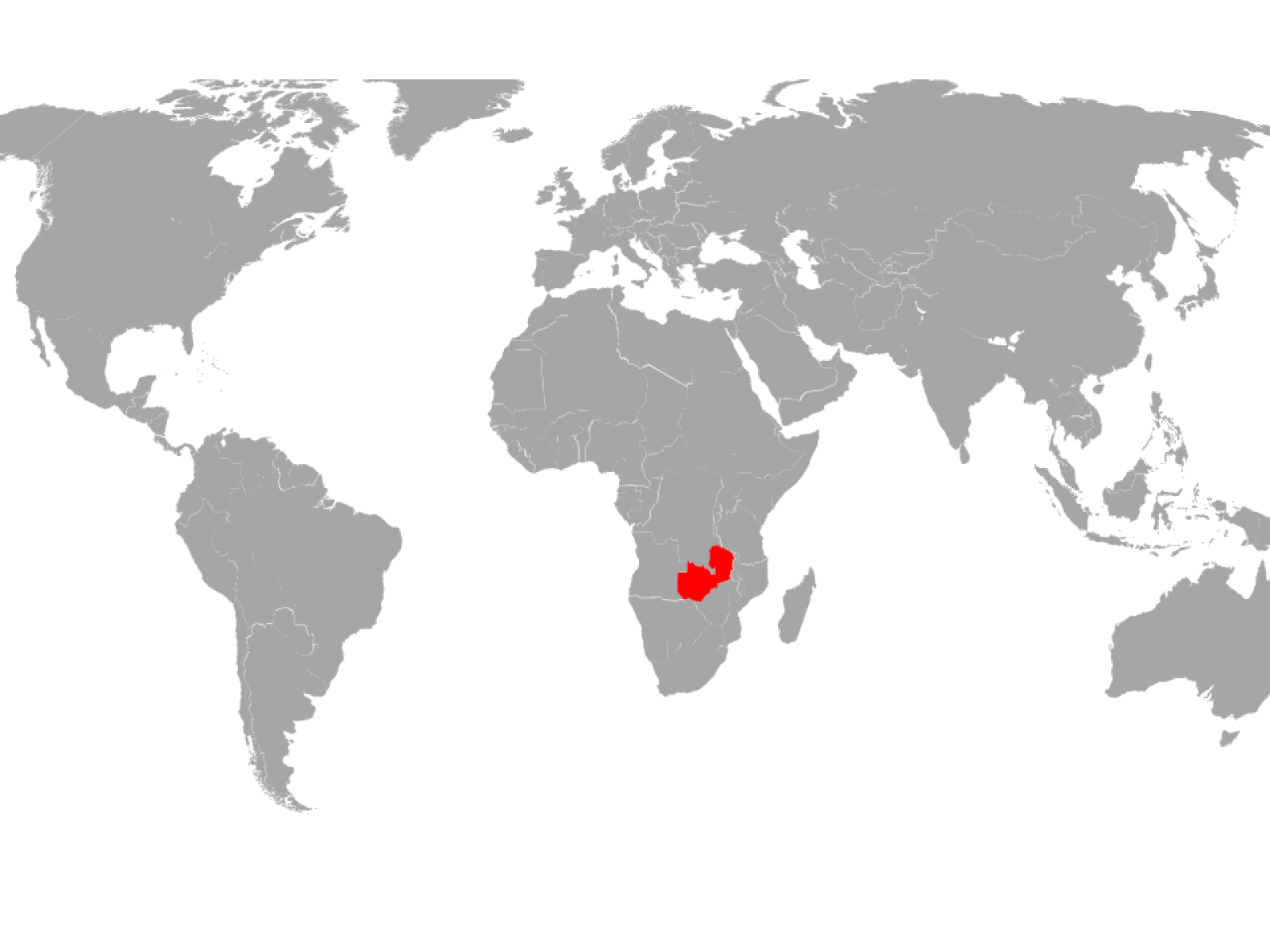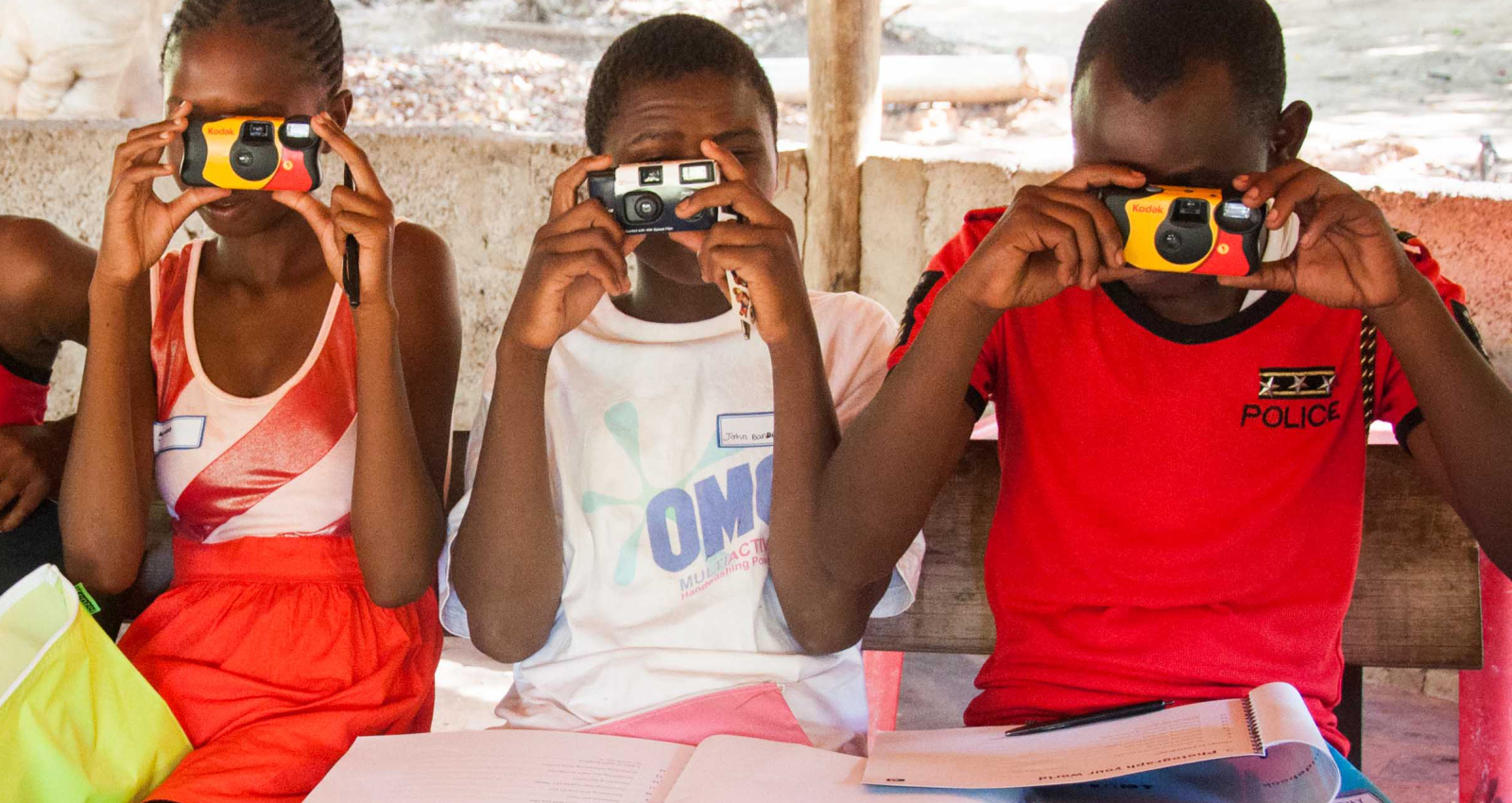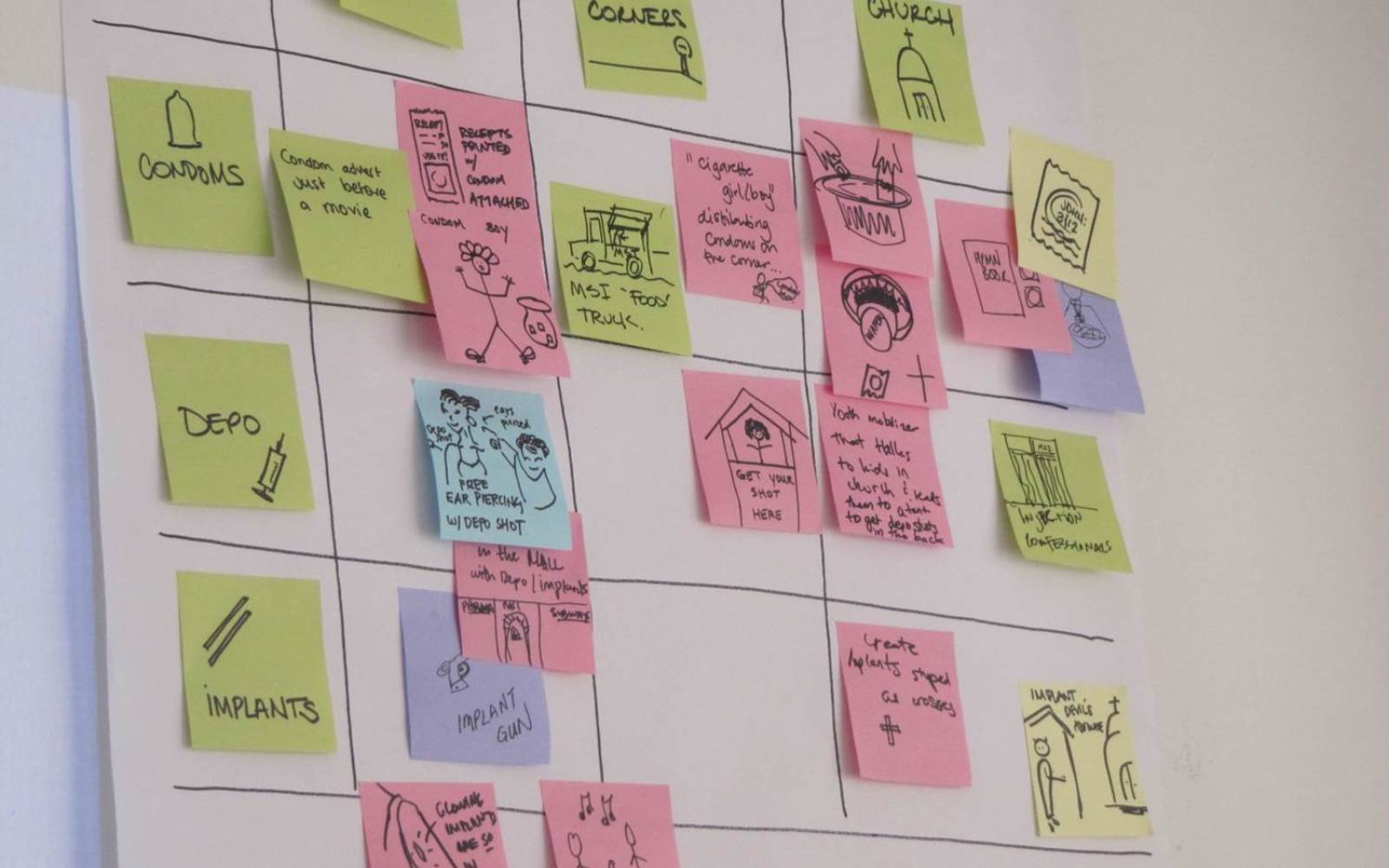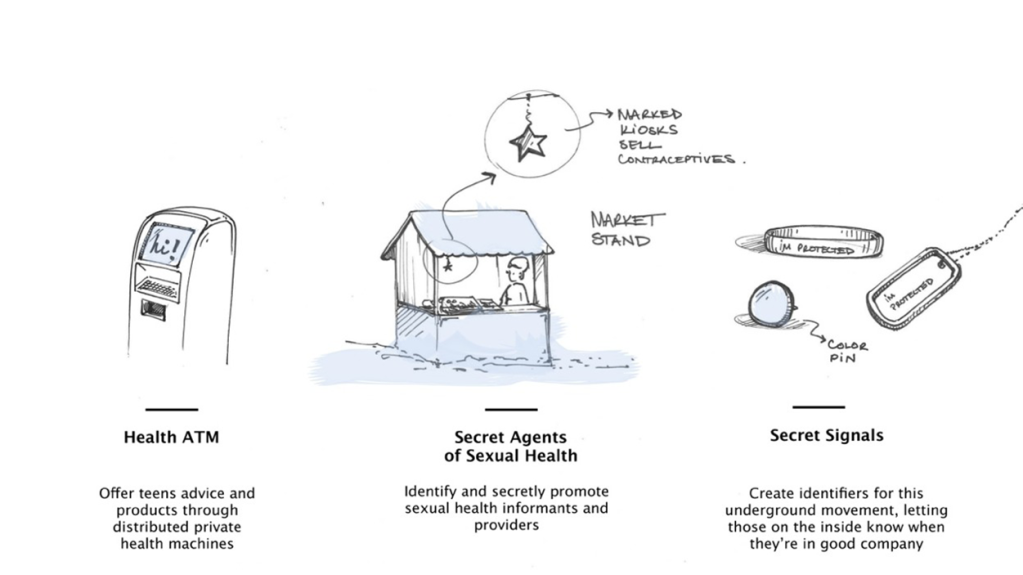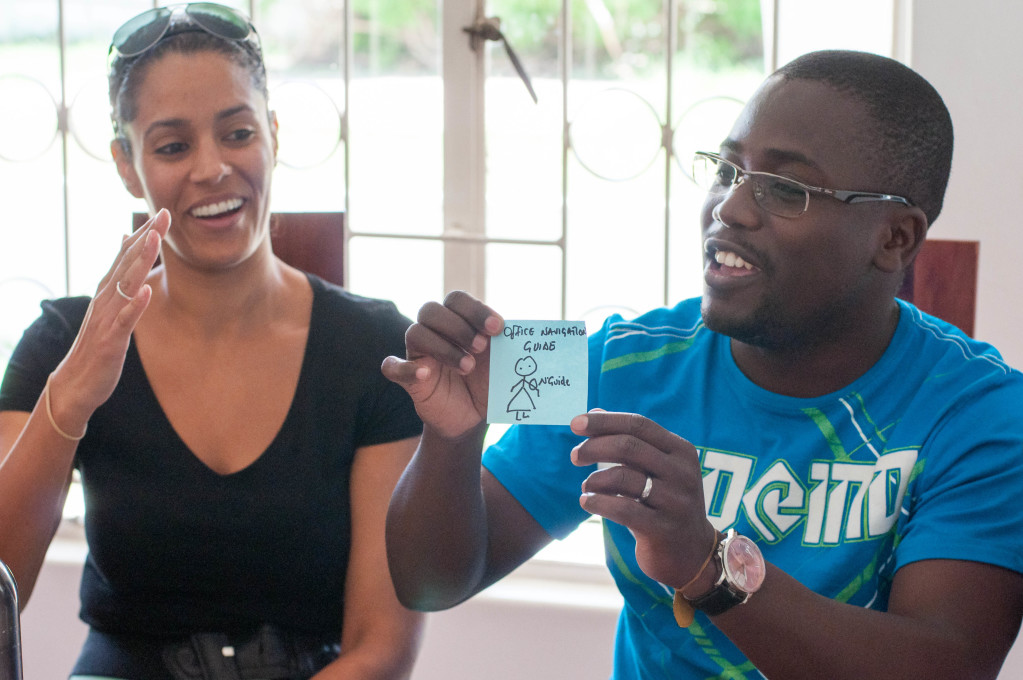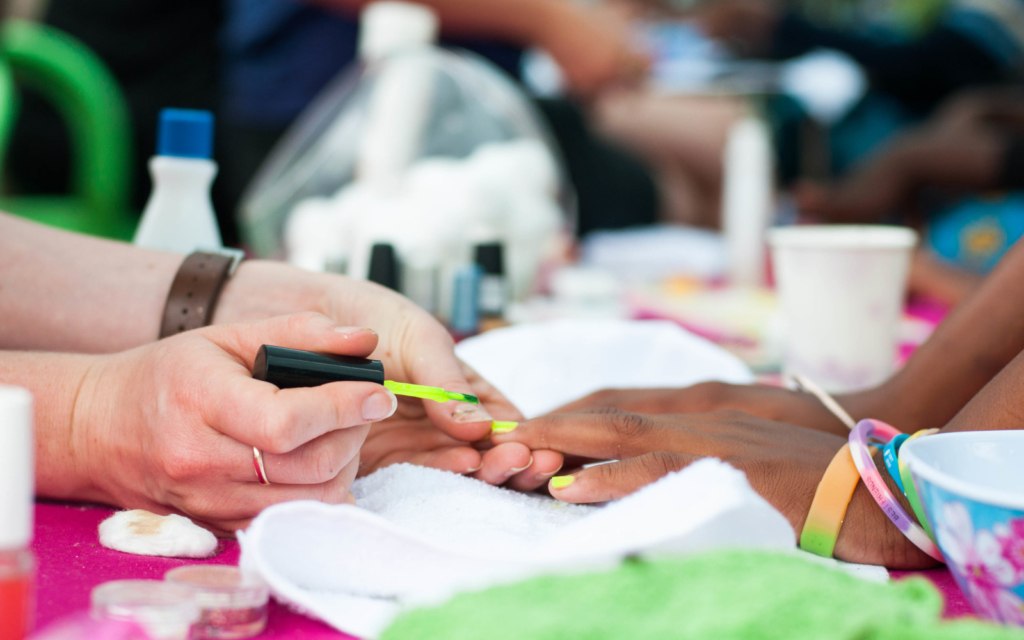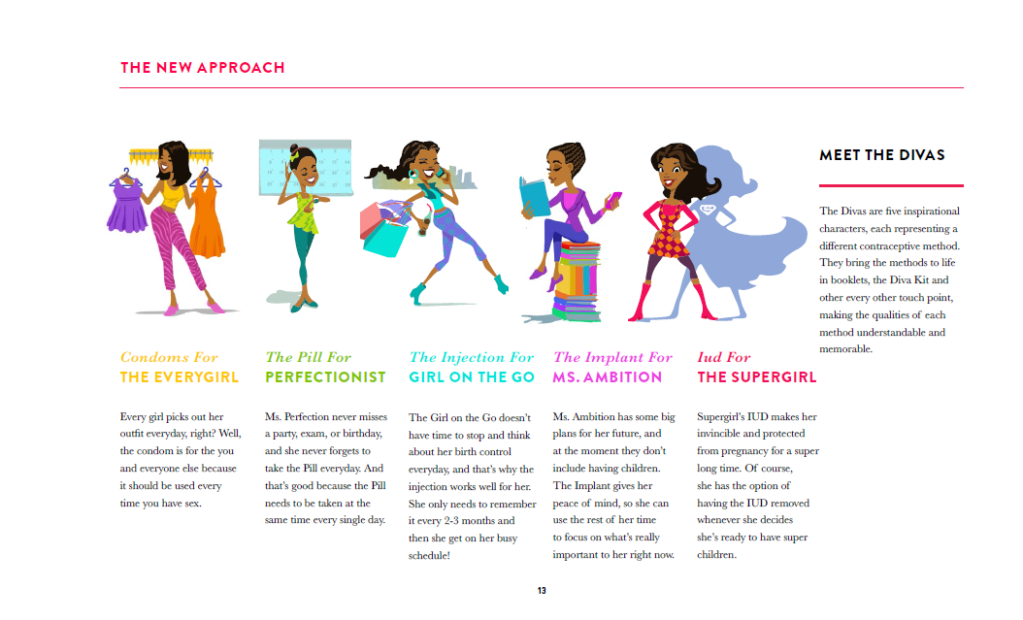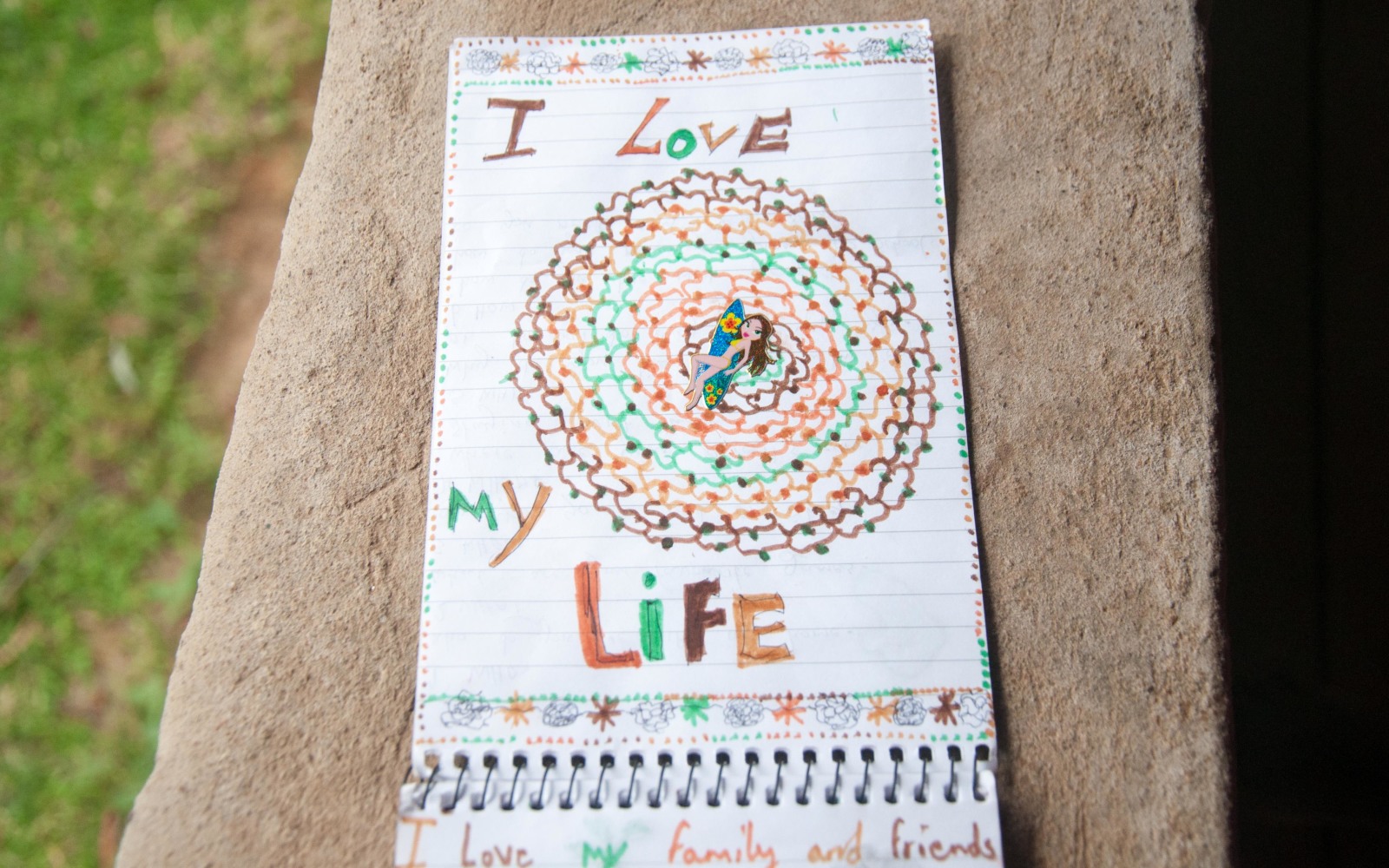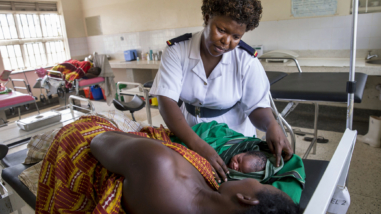Program Officer Margot Fahnestock on how a new partnership is helping
A New Approach
Having funded reproductive health services for nearly 50 years, The William and Flora Hewlett Foundation is an experienced donor in the field of family planning. But a persistent challenge—especially for mature donors—is how to better connect with the teenagers we are trying to steer clear of unplanned pregnancies.
So, two years ago, as the Foundation’s Global Development and Population Program worked to refresh our strategic plan, we began to explore new approaches that might help us upgrade our efforts in the family planning and reproductive health field.
One of the approaches that appealed to us as donors was the concept known as human-centered design or “design thinking.”
Design thinking is an innovative approach to problem solving that incorporates insights about human preferences and behavior into product design and service delivery. Its main source of fuel is empathy—deciphering what people really want through watching and listening—and its use has played an instrumental role in the invention or redesign of everything from the mouse used in personal computing, to defibrillators, to Pringles potato chips.
Could it produce a breakthrough in our reproductive health work? We decided to find out, so late last year, we brokered a partnership between one of our longtime partners in the field—the nonprofit reproductive healthcare provider Marie Stopes International—and a pioneer in design thinking for international development—the Silicon Valley-based nonprofit, IDEO.org—to help teenagers in Zambia access reproductive health services.
This is the latest in a series of occasional updates on the project by Hewlett Foundation Program Officer, Margot Fahnestock.
